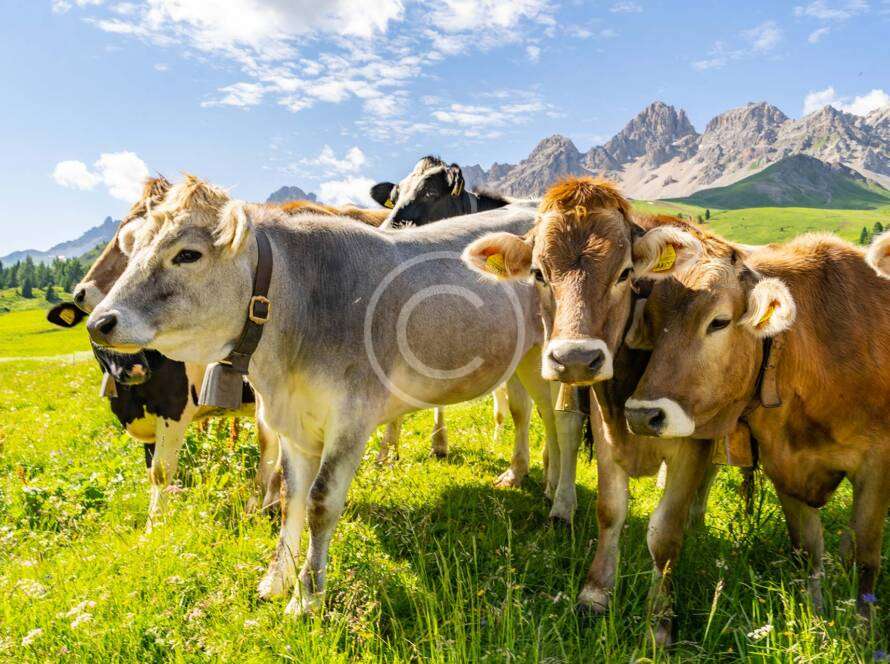Probiotics have emerged as a critical component of modern dairy cow nutrition, offering a natural approach to enhancing animal health, milk production, and overall farm productivity. This comprehensive guide explores the multifaceted role of probiotics in supporting dairy cow wellness.
Understanding Probiotics in Dairy Nutrition
What Are Probiotics?
Probiotics are:
- Live beneficial microorganisms
- Primarily beneficial bacteria and yeasts
- Natural health support mechanisms
- Digestive system regulators
- Immune system enhancers
Key Probiotic Mechanisms
- Gut microbiome balance
- Nutrient absorption improvement
- Immune system modulation
- Pathogen reduction
- Metabolic function support
Types of Probiotics in Dairy Cow Nutrition
1. Bacterial Probiotics
Primary bacterial strains include:
- Lactobacillus species
- Bifidobacterium species
- Enterococcus faecium
- Bacillus subtilis
- Propionibacterium
2. Yeast-Based Probiotics
Notable yeast probiotics:
- Saccharomyces cerevisiae
- Saccharomyces boulardii
- Specific live yeast cultures
Nutritional Benefits of Probiotics
Digestive System Support
- Enhanced nutrient digestion
- Improved feed conversion
- Reduced digestive disorders
- Balanced rumen microbiome
- Increased nutrient absorption
Immune System Enhancement
- Natural pathogen resistance
- Reduced inflammatory responses
- Improved immune cell function
- Stress response modulation
- Enhanced overall health protection
Probiotic Integration Strategies
Feeding Approaches
- Direct feed supplementation
- Mixed with regular feed rations
- Liquid probiotic supplements
- Bolus or capsule delivery
- Targeted nutritional programs
Dosage and Administration
- Consistent daily supplementation
- Age and production stage-specific dosing
- Veterinary consultation
- Careful monitoring
- Individualized approach
Health Conditions Addressed
Digestive Disorders
- Reducing scours
- Preventing acidosis
- Managing bloat
- Supporting rumen function
- Mitigating nutritional stress
Metabolic Support
- Improved energy metabolism
- Enhanced nutrient utilization
- Reduced metabolic disorders
- Hormonal balance support
- Efficient nutrient conversion
Organic and Sustainable Nutrition
Probiotic Benefits in Organic Farming
- Natural health support
- Reduced antibiotic dependence
- Environmentally friendly approach
- Enhanced animal welfare
- Sustainable nutrition strategies
Economic Considerations
Production Impact
- Improved milk yield
- Enhanced milk quality
- Reduced veterinary expenses
- Better feed efficiency
- Long-term herd productivity
Cost-Benefit Analysis
- Initial supplement investment
- Potential productivity gains
- Reduced treatment costs
- Improved animal longevity
- Comprehensive health management
Research and Scientific Validation
Current Scientific Understanding
- Ongoing microbiome research
- Advanced genomic studies
- Precision nutrition developments
- Sophisticated tracking technologies
- Comprehensive health assessments
Practical Implementation
Probiotic Integration Plan
- Comprehensive herd assessment
- Targeted probiotic selection
- Gradual supplementation
- Regular health monitoring
- Continuous adjustment
Technological Support
Modern Monitoring Tools
- Microbiome analysis technologies
- Digital health tracking
- Nutritional performance software
- Precision feeding systems
- Data-driven nutrition management
Challenges and Considerations
Implementation Obstacles
- Individual cow variations
- Complex microbiome interactions
- Variability in probiotic effectiveness
- Economic constraints
- Ongoing research developments
Environmental and Welfare Considerations
Sustainable Nutrition Approach
- Reduced chemical interventions
- Natural health support
- Improved animal welfare
- Ecosystem-friendly strategies
- Holistic agricultural practices
Conclusion
Probiotics represent a sophisticated, natural approach to supporting dairy cow nutrition and health. By understanding and strategically implementing probiotic supplementation, farmers can enhance herd productivity, reduce health complications, and support sustainable agricultural practices.
Disclaimer: Probiotic effectiveness can vary based on individual herd characteristics, specific farm conditions, and ongoing nutritional research.


